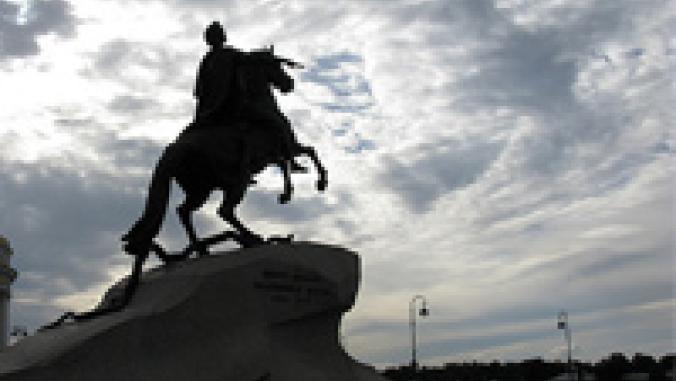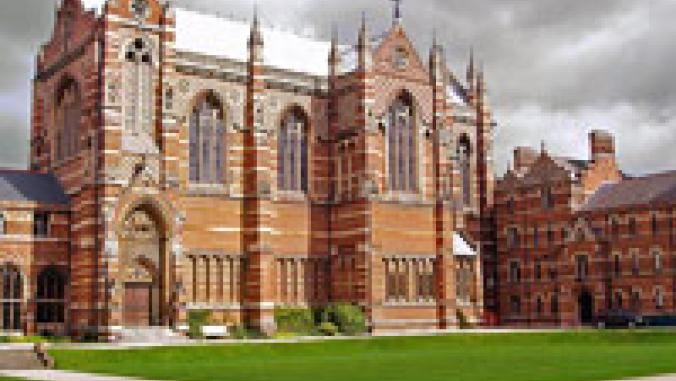What Environmentalism Could Learn from L.A.
The cliché has it that there is no environment in Los Angeles, but as a mythical city facing hordes of environmental, economic and social challenges, there are a multitude of lessons there that we can use in developing and sustaining the environmental movement.
The cliché has it that there is no environment in Los Angeles, but as a mythical city facing hordes of environmental, economic and social challenges, there are a multitude of lessons there that we can use in developing and sustaining the environmental movement.
Apologies to James Lowell, but books praising Los Angeles are about that rare -- actually, rarer. That's one reason Rayner Banham's book, Los Angeles: The Architecture of Four Ecologies, is so thought provoking.
He applauds L.A., arguing at the end that "This sense of possibilities still ahead is part of the basic life-style of Los Angeles . . . [which] by comparison with the general body of official Western culture at the moment, increasingly given over to facile, evasive and self-regarding pessimism, can be a very refreshing attitude to encounter." He was writing in 1971, but if anything his point is more valid today. Moreover, although the irony is palpable, environmentalism could learn from L.A.
One must begin by understanding that L.A., more than any other city, is mythic. It is mythic because it is at the end of Route 66, where the (also mojo mythic) American West met the Pacific -- "California, Here I Come"; because Hollywood is there, and the reality of the movies keeps seeping into the postmodern fantasies of the city (is L.A. a movie pretending to be a city, or a city pretending to be a movie?); because it is film noir, rocker noir, and now gamer noir; because no city, no culture anywhere combines the world's prime iconology of psychological freedom -- the automobile -- with the infrastructure, the youth, the 'tude, the Valley gurl culture with such verve and insouciance. Las Vegas doesn't come close: it's an all too plastic stage set, but L.A.'s primal postmodernism perturbs reality itself.
And, of course, it's also the nightmare myth of environmentalists: A vampire city that sucks water from not just Northern California (which by being in the same state is asking for insult), but from the entire Southwest, and is now eyeing the Midwest. A culture that idolizes automobiles and freeways in a world that must be weaned off fossil fuels and cars, and on to mass transit. (A historical note: contrary to popular belief, the transport system in L.A. was framed not by freeways, but by the tracks of the Pacific Electric Railway; see their route map at www.erha.org/pe_system_map.jpg).
L.A. is the opposite of the Calvinist soul of much of modern environmentalism, where people are born sinful, live sinful, must repent by suffering and renounce material goods if they are to be saved, and are judged after death by their carbon footprint. And L.A. is no more popular with planners, who want people to do, and go, where they're told, not where they choose, and who have therefore elevated L.A. to mythic status as philistine.
L.A. is in this view an anarchistic -- even nihilistic -- spasm of irresponsible sun, sand, surf, rock and cars that will inevitably sink under its own self-indulgent weight. L.A. probably has more people secretly hoping for its demise than any other city in the world.
Perhaps at this point you begin to perceive the problem. In a clash of mythic visions, L.A. wins, at least in the United States. Give people a choice between a convertible Mustang and a day at the beach, and the obsessive Calvinism that modern environmentalism elevates to a primary value, and guess what people choose.
It is not just the cars and sense of freedom; it is far more profound than that. L.A. is the Promethean myth, the myth of the American West and individualism, of personal growth and opportunity and a better future. Ironically, just this optimistic mythos was integral to early environmentalism -- think Stuart Brand in 1968 in the first Whole Earth Catalog saying "We are as gods and might as well get good at it," or the interplay between environmental activism and the likes of Buckminster Fuller in the late 1960's.
But somewhere along the line, the environmental movement rejected L.A. mythic, not recognizing, perhaps, that doing so was to reject the energy, vitality, and creativity that true environmentalism needed then, and needs even more today.
Obviously L.A., and automobiles, must change, and there are serious environmental issues to be addressed. The point, however, is that a necessarily broad movement cannot reject -- indeed, must adopt -- multiple myths, especially ones that elevate creativity, innovation, and human freedom, and that framing environmentalism as a new and authoritarian Calvinism is self-defeating.
Sure it sanctifies true believers, and enables environmental and sustainability activists to look down on those not yet saved. But it's not a myth that will help you get real environmental and social progress. For that, you need L.A.
Apologies to James Lowell, but books praising Los Angeles are about that rare -- actually, rarer. That's one reason Rayner Banham's book, Los Angeles: The Architecture of Four Ecologies, is so thought provoking.
He applauds L.A., arguing at the end that "This sense of possibilities still ahead is part of the basic life-style of Los Angeles . . . [which] by comparison with the general body of official Western culture at the moment, increasingly given over to facile, evasive and self-regarding pessimism, can be a very refreshing attitude to encounter." He was writing in 1971, but if anything his point is more valid today. Moreover, although the irony is palpable, environmentalism could learn from L.A.
One must begin by understanding that L.A., more than any other city, is mythic. It is mythic because it is at the end of Route 66, where the (also mojo mythic) American West met the Pacific -- "California, Here I Come"; because Hollywood is there, and the reality of the movies keeps seeping into the postmodern fantasies of the city (is L.A. a movie pretending to be a city, or a city pretending to be a movie?); because it is film noir, rocker noir, and now gamer noir; because no city, no culture anywhere combines the world's prime iconology of psychological freedom -- the automobile -- with the infrastructure, the youth, the 'tude, the Valley gurl culture with such verve and insouciance. Las Vegas doesn't come close: it's an all too plastic stage set, but L.A.'s primal postmodernism perturbs reality itself.
And, of course, it's also the nightmare myth of environmentalists: A vampire city that sucks water from not just Northern California (which by being in the same state is asking for insult), but from the entire Southwest, and is now eyeing the Midwest. A culture that idolizes automobiles and freeways in a world that must be weaned off fossil fuels and cars, and on to mass transit. (A historical note: contrary to popular belief, the transport system in L.A. was framed not by freeways, but by the tracks of the Pacific Electric Railway; see their route map at www.erha.org/pe_system_map.jpg).
L.A. is the opposite of the Calvinist soul of much of modern environmentalism, where people are born sinful, live sinful, must repent by suffering and renounce material goods if they are to be saved, and are judged after death by their carbon footprint. And L.A. is no more popular with planners, who want people to do, and go, where they're told, not where they choose, and who have therefore elevated L.A. to mythic status as philistine.
L.A. is in this view an anarchistic -- even nihilistic -- spasm of irresponsible sun, sand, surf, rock and cars that will inevitably sink under its own self-indulgent weight. L.A. probably has more people secretly hoping for its demise than any other city in the world.
Perhaps at this point you begin to perceive the problem. In a clash of mythic visions, L.A. wins, at least in the United States. Give people a choice between a convertible Mustang and a day at the beach, and the obsessive Calvinism that modern environmentalism elevates to a primary value, and guess what people choose.
It is not just the cars and sense of freedom; it is far more profound than that. L.A. is the Promethean myth, the myth of the American West and individualism, of personal growth and opportunity and a better future. Ironically, just this optimistic mythos was integral to early environmentalism -- think Stuart Brand in 1968 in the first Whole Earth Catalog saying "We are as gods and might as well get good at it," or the interplay between environmental activism and the likes of Buckminster Fuller in the late 1960's.
But somewhere along the line, the environmental movement rejected L.A. mythic, not recognizing, perhaps, that doing so was to reject the energy, vitality, and creativity that true environmentalism needed then, and needs even more today.
Obviously L.A., and automobiles, must change, and there are serious environmental issues to be addressed. The point, however, is that a necessarily broad movement cannot reject -- indeed, must adopt -- multiple myths, especially ones that elevate creativity, innovation, and human freedom, and that framing environmentalism as a new and authoritarian Calvinism is self-defeating.
Sure it sanctifies true believers, and enables environmental and sustainability activists to look down on those not yet saved. But it's not a myth that will help you get real environmental and social progress. For that, you need L.A.



